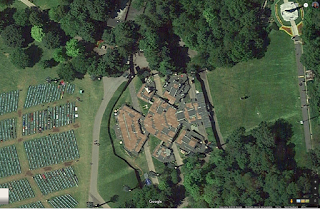When Joseph Smith’s was alive:
1835 Messenger and Advocate and Joseph Smith’s own journal: It is a fact that the Hill Cumorah is in New York. [See Letter VII]
1841: Times and Seasons and Gospel Reflector: It is a fact that the Hill Cumorah is in New York. [See Letter VII]
1842: D&C 128:20 And again, what do we hear? Glad tidings from Cumorah! Moroni, an angel from heaven, declaring the fulfilment of the prophets—the book to be revealed.
Modern day scholars:
FairMormon: “Since the 1950s, opinion among Book of Mormon scholars has increasingly trended toward the realization that the Nephite Cumorah and the Hill in New York cannot be the same.”
Neal A. Maxwell Institute: “the Cumorah of the golden plates is not the Cumorah of the final battles…This is not the place of Mormon’s last stand. We must look elsewhere for that hill.” BYU Professor John E. Clark, in Journal of Book of Mormon Studies.
BYU Studies: The hill Ramah/Cumorah, upon which both the Jaredites and Nephites fought their last battles… is shown here on the northwestern edge of the Tuxtla Mountains in Mexico.
Consequences:
 Because most modern LDS scholars “realize” Cumorah cannot be in New York, tens of thousands of people visit the Hill Cumorah in New York every year to witness a recreation of a Mayan temple on the site. Here’s how it appears in Google Earth.
Because most modern LDS scholars “realize” Cumorah cannot be in New York, tens of thousands of people visit the Hill Cumorah in New York every year to witness a recreation of a Mayan temple on the site. Here’s how it appears in Google Earth.
Attendees at the pageant are taught that Mormon buried the records in Cumorah, but then Moroni wandered for years before the Lord directed him to the hill in New York.
For those who don’t reject Oliver Cowdery’s observations about Cumorah, I propose that we make Cumorah great again.
_________________________
Excerpts from Letter VII:
The Hill Cumorah was “[Cumorah] is the highest hill for some distance round…At about one mile west rises another ridge of less height, running parallel with the former, leaving a beautiful vale between… the fact, that here, between these hills, the entire power and national strength of both the Jaredites and Nephites were destroyed…. In this valley fell the remaining strength and pride of a once powerful people, the Nephites—once so highly favored of the Lord, but at that time in darkness, doomed to suffer extermination by the hand of their barbarous and uncivilized brethren. From the top of this hill, Mormon, with a few others, after the battle, gazed with horror upon the mangled remains of those who, the day before, were filled with anxiety, hope, or doubt… [Mormon] deposited, as he says, on the 529th page, all the records in this same hill, Cumorah.
Source: Book of Mormon Wars

